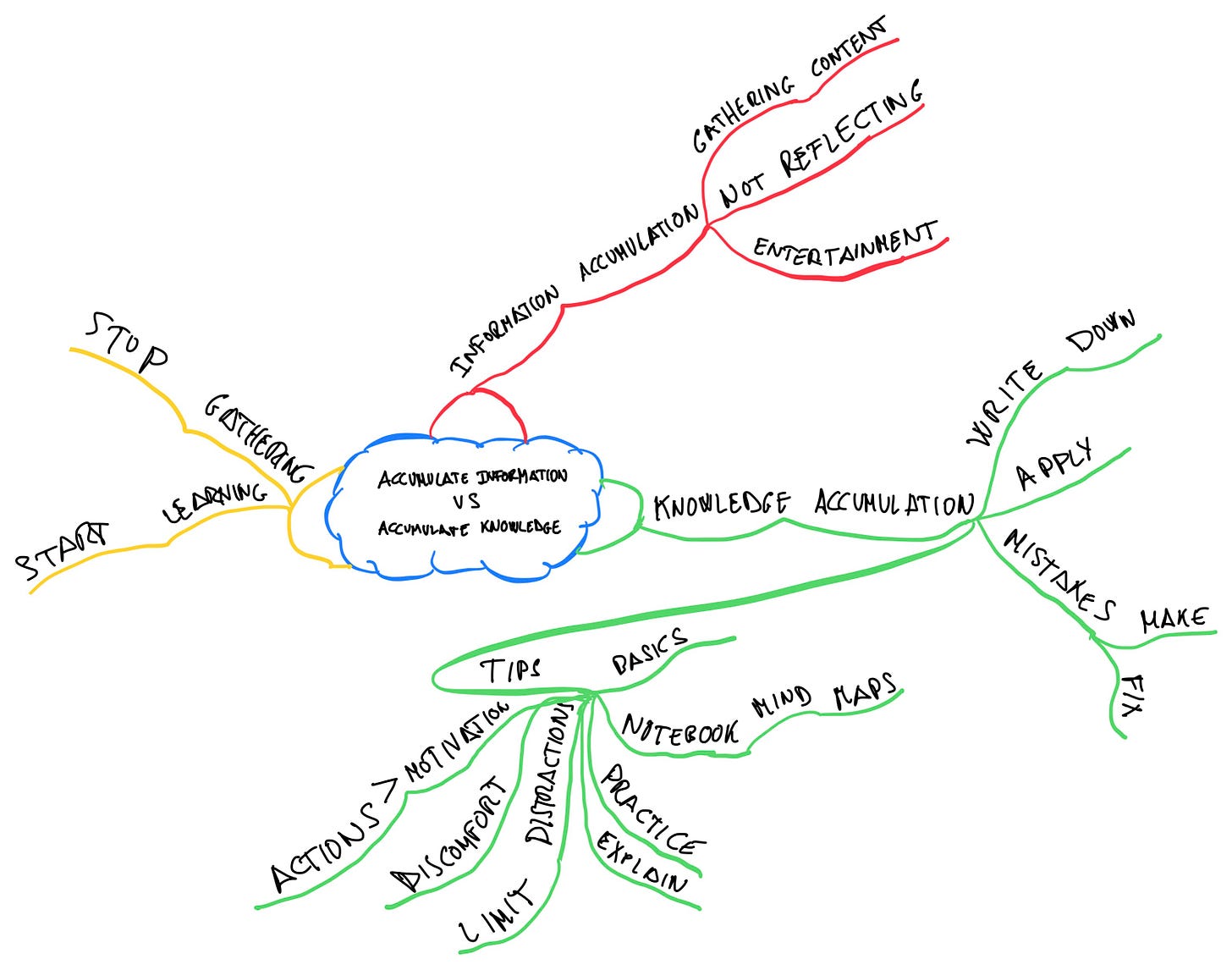[0.0] Accumulate Information vs. Accumulate Knowledge
Why less information, well learned, beats endless collecting.
I’ve long been an expert at accumulating information: buying books, downloading PDFs, collecting reports and software; always gathering more. But gathering more doesn’t matter if you don’t learn what’s already in front of you. The point isn’t collecting, it’s focusing on less and learning it well.
“Accumulate information” means gathering and consuming content (watching YouTube videos, signing up for courses…) without reflecting on what’s being said. That’s pure entertainment. And hey, it’s fine; I do it all the time. But if you want to accumulate knowledge, that doesn’t work.
Learning means working with information: breaking it down, applying it, making mistakes, and fixing them.
Here are a few tips that help turn information into knowledge:
Don’t read more than you can apply.
Study with a notebook (or similar). Write, sketch, create mind maps. Our brain works in networks, not straight lines, so mapping concepts helps. But mind maps are only useful if you create them yourself. I’ll try to attach mine in each post, but you should do your own.
Practice. If we don’t practice in real life, nothing sticks. Look for side projects at work, start a small project on your own, try free vendor labs, or create your own challenges. At some point I’ll share labs that help understand foundational AI models and types.
Explain. After studying and practicing, explain what you’ve learned. Write summaries, talk to colleagues, or start a blog. That’s why I’m writing this project: to consolidate my own knowledge.
Don’t rush ahead without the basics. Revisit your notes and mind maps until the foundations are solid. At first you’ll need to reread the words and concepts, but later, a single glance at the map will trigger all that knowledge in your head.
Limit distractions. Don’t try to learn with 20 tabs open, your phone buzzing, and chats popping. For me, going to the library has always helped. Presence leads to flow, where time disappears and learning becomes less of a struggle and more of a ride. Focus on one thing, not many.
Lean into discomfort. At first, opening the AWS console, setting up infrastructure, or running a model will feel uncomfortable. But that’s where learning happens. What feels hard today will be your comfort zone tomorrow.
Motivation shouldn’t depend on volatile enthusiasm. It comes from action, focusing on what you can control: your attitude and your effort.
Stop gathering. Start learning.
Here’s the mind map I created for this post.



This is a great reminder that knowledge, like code, only becomes truly valuable when it’s integrated and used. In version control, uncommitted changes or long‑lived branches eventually lose context and become harder to merge. The same is true with learning — if we collect information but never apply it, it drifts out of relevance.
The most effective growth I’ve seen, whether in teams or individuals, comes from short, deliberate cycles: acquire a small piece of information, apply it in practice, review the results, and refine. That’s how you keep both codebases and skillsets healthy, current, and ready for the next challenge.